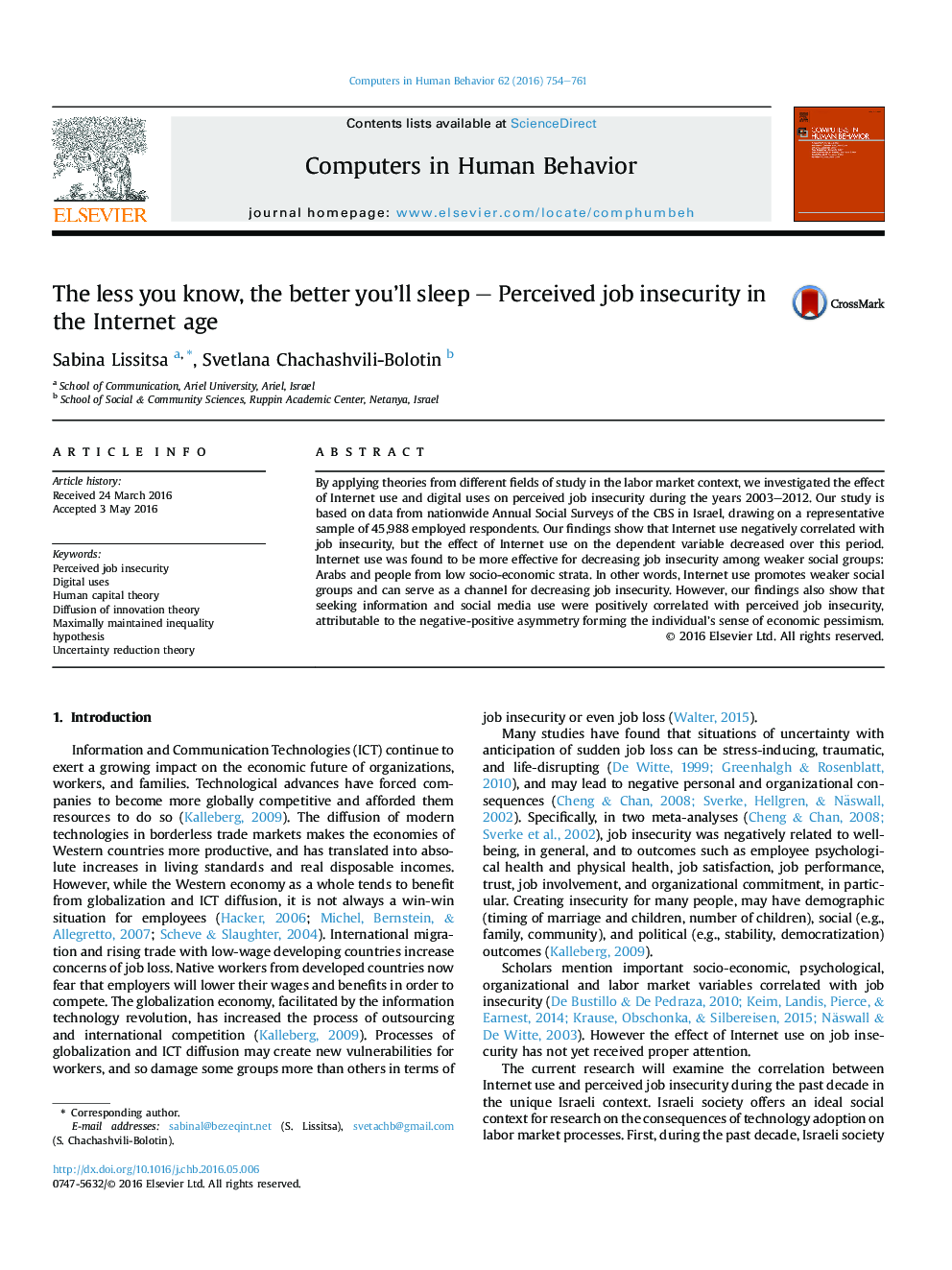| Article ID | Journal | Published Year | Pages | File Type |
|---|---|---|---|---|
| 6836972 | Computers in Human Behavior | 2016 | 8 Pages |
Abstract
By applying theories from different fields of study in the labor market context, we investigated the effect of Internet use and digital uses on perceived job insecurity during the years 2003-2012. Our study is based on data from nationwide Annual Social Surveys of the CBS in Israel, drawing on a representative sample of 45,988 employed respondents. Our findings show that Internet use negatively correlated with job insecurity, but the effect of Internet use on the dependent variable decreased over this period. Internet use was found to be more effective for decreasing job insecurity among weaker social groups: Arabs and people from low socio-economic strata. In other words, Internet use promotes weaker social groups and can serve as a channel for decreasing job insecurity. However, our findings also show that seeking information and social media use were positively correlated with perceived job insecurity, attributable to the negative-positive asymmetry forming the individual's sense of economic pessimism.
Related Topics
Physical Sciences and Engineering
Computer Science
Computer Science Applications
Authors
Sabina Lissitsa, Svetlana Chachashvili-Bolotin,
